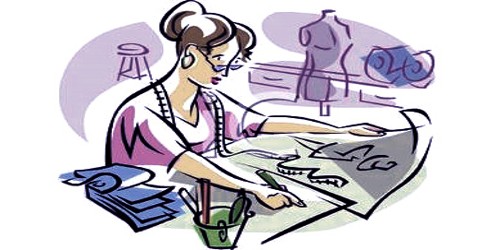Life of a Garment Workers
The life of a garment worker is very pathetic. He/she cannot lead a solvent life. Suppose, a garment worker named “Parul” lives near a city area. Her daily life starts very early and comes to an end at about 10 p.m. She sets about for her working place at about 7 a.m. The garments industry is chiefly female workers-based, and the main prop of our national economy.
Generally, she goes to her factory along with her fellow workers on foot. Sometimes, she has to rush into a crowded bus to reach her factory. On the way to her destination, she has to endure obscene words of the vagabonds and hoodlums very silently. The atmosphere of her factory is not wholesome. She works in a congested room. Sometimes she works all day long resting on her feet. She is allowed only a few minutes to take her poor lunch. S/He does not get an extra holiday except Friday and special occasions like Eid. If he does not go to work for any emergency personal work, then he does not get money for those days.
Though she works by the sweat of her brow, she gets a very meager wage. With this small income, she has to manage her family consisting of four members (Or more) – her ailing parents and her two younger brothers or sister. A long hour of work often makes her sick. So sometimes she gets exhausted and bored. Sometimes she is harassed by her male colleagues. It seems that her life is moving towards an uncertain future. In Bangladesh, almost 70% or 80% of workers are young girls. They come from different areas of the country. Most of the girls are of 16 to 30 years. Most of the time females are sexually hazard in the industry. This age is a proper time for education but they are deprived of that and they are involved in the garment sector. By improving our garments industry as well as our garments worker we will be able to be a self indigested nation.
Our society does not possess a sympathetic attitude towards a garment worker. As tradition goes on, she will perhaps get married to a fellow worker or a rickshaw puller and try to continue her miserable life. In spite of playing an important role to advance our economic progress, he/she is not given honor and dignity. So, he/she should have been given better opportunities in the factory and society to lead a better and comfortable life beside us.
















